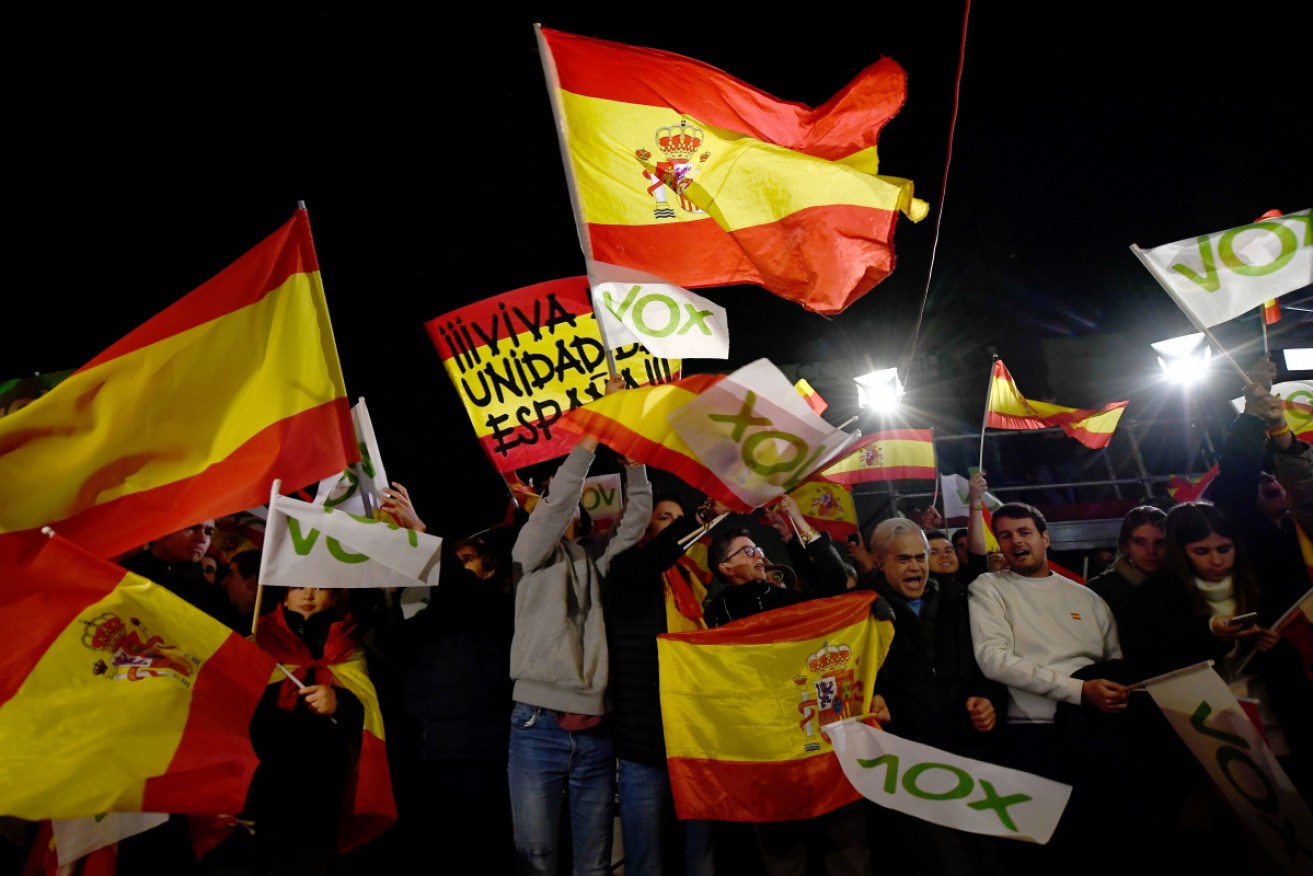No majority as far-right gains in Spain vote

Spanish far-right party Vox supporters celebrate outside the party's headquarters. Photo: Getty
Spain’s fourth national election in four years is likely to result in another hung parliament – with the far-right Vox party set to more than double its share of seats.
The Socialists of acting Prime Minister Pedro Sanchez were on course to finish first but with fewer seats than in the previous ballot in April, according to a partial tally and exit polls.
That would leave them further away from a majority in an even more fragmented parliament.
With official results trickling in throughout the evening, the nearly 80% of votes counted showed the Socialists first, the conservative People’s Party (PP) second and Vox third.
Vox, headed by Santiago Abascal, could get around 53 seats, up from the 24 seats with which it debuted in parliament in April.
Spain had long appeared immune to a nationalist surge that has swept through other parts of Europe in recent elections, with many still remembering the military dictatorship of General Francisco Franco.
But anger with political gridlock and with secessionist unrest in Catalonia appeared to have significantly boosted Vox’s popularity.
Many right-wingers were also not pleased by the exhumation of Franco’s remains last month so he could no longer be exalted in a public place.
“I feel very excited that there is a resurgence of values in Spain and this party seems to me the only one that defends them,” Maria Dolores Cuevas, a 68-year pensioner, said at Vox headquarters.
This is how the results of the election in Spain looks at the moment. Socialist PSOE remains the largest party, but there is a distinct shift to the right otherwise. A stable governing coalition looks very elusive. pic.twitter.com/FPogas2jb8
— Carl Bildt (@carlbildt) November 10, 2019
Meanwhile, casting her ballot for the Socialists in Madrid earlier in the day, 64-year old retired history teacher Esperanza de Antonio called the party a danger to democracy.
“I’m saying this because I’ve taught about fascism for 30 years,” she told Reuters. Franco ruled Spain as an autocrat from 1939 to 1975, when he died.
Higher abstention rates on Sunday showed that voters are tired of being called repeatedly to the ballot box and that, if nothing else, that could help the parties reach a deal on forming a government.
The most likely outcome appears to be a minority Socialist government. The bigger question would be who its allies could be and how long such a government could last in a very fragmented parliament.
In the most optimistic scenario for the left, it would get to a majority of 176 seats when adding various small regional parties and Catalan separatist lawmakers.
Sanchez called the election betting that a new vote would strengthen his party’s hand after failing to forge the alliances needed to form a government on the basis of the April result.
-AAP






